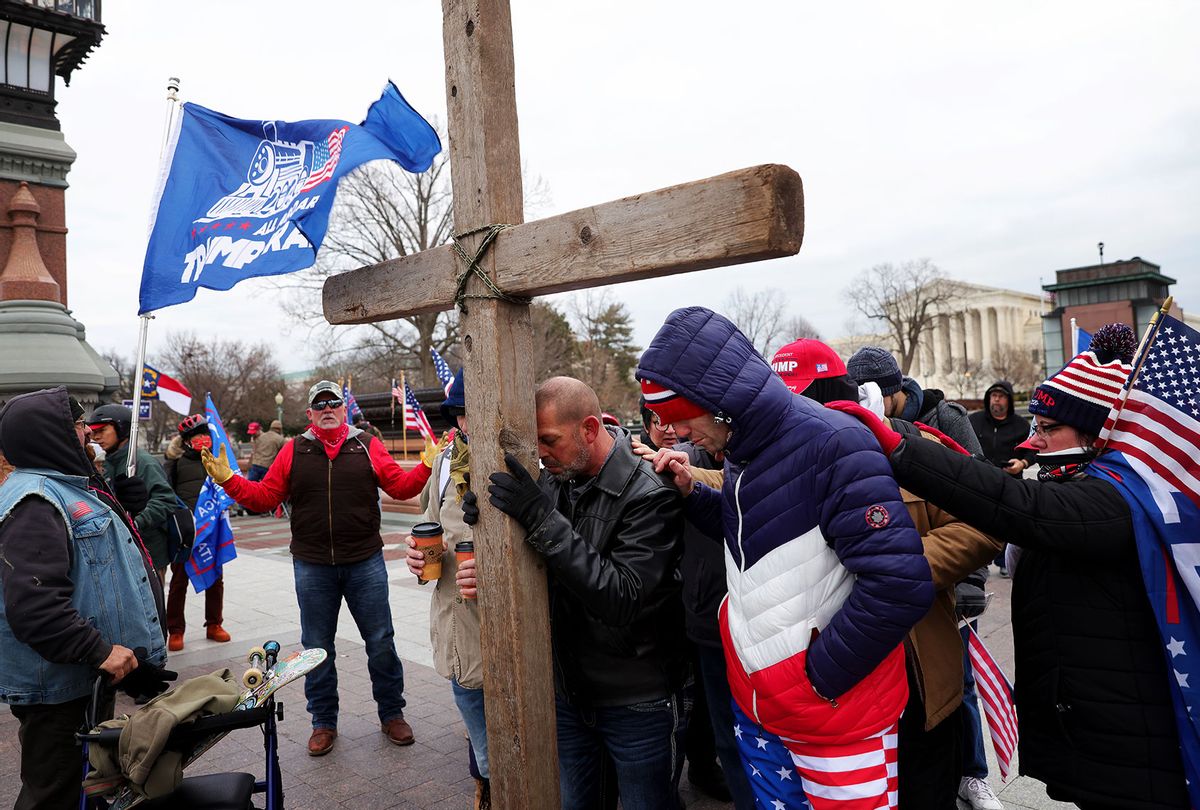On Jan. 6, 2021, a large group of evangelical Christians attacked the U.S. Capitol on the understanding that they were fighting for God's president. (Not all of those who stormed the Capitol were driven by religious convictions, of course, but a large proportion were.) They were ready to kill for their president, take down a democratic system that has endured nearly 250 years, and follow Donald Trump at God's supposed direction until America became a Christian theocracy. As the House Jan. 6 committee concludes its investigation, I think the power and significance of these evangelical believers have been overlooked.
Most people now understand that the solid foundation of support for Trump is connected to evangelical theology, and that was never more clear than on that fateful day. The Jan. 6 committee has assigned itself the task of identifying those who are guilty of planning and inspiring this coup attempt, and while the former president was obviously the central figure, I would like to shift the committee's attention to prominent evangelical pastors. These religious leaders have enormous political and spiritual influence and in many cases have provided the moral authority that led their followers to work toward the overthrow of American democracy.
The cross was visible everywhere on Jan. 6. The Christian faith — at least as they understood it — was aflame in the hearts of most of the people who attacked the capitol. The hard and almost incomprehensible truth is that many of these people had never committed a single act of violence in their lives, and on that winter day found themselves chanting, "Hang Mike Pence," and actually ready to carry that out. That could not have happened without the sincere faith that God himself was supporting their actions.
Remember that Mike Pence is as devout an evangelical Christian as any politician in America. He is committed to evangelical theology in his personal life and his political career. And yet he became enemy No. 1 to a group of purported evangelical believers who viewed him as a traitorous criminal and became committed to murdering him. That could not have happened without the profound conviction that Trump was the ordained president chosen by the creator of the universe.
Want a daily wrap-up of all the news and commentary Salon has to offer? Subscribe to our morning newsletter, Crash Course.
Faith in God can be dangerous, as both sincere believers and nonbelievers are aware. Faith is behind the oppressive nature of Iran's morality police. When you take people whose conscience, in any normal circumstance, would prevent them from committing a heinous or violent act and tell them, "This is for God," and their moral compass is pushed aside. Killing women for removing a garment from their heads — as has happened recently in the streets of Tehran — is literally insane. But for some people, if they become convinced they are following God's orders, it becomes possible to do it. Attacking the Capitol and seeking to hang Mike Pence and Nancy Pelosi is equally insane. But a person who literally believes that God told them to do it suddenly becomes capable of evil deeds well beyond their previous experience.
I am an ordained minister and Bible-believing Christian, and I am also a firm believer in the separation of church and state. I want my faith far removed from the public school system, the Supreme Court, the White House and Congress. People in power who seek to force their religious beliefs onto the larger public are more dangerous than any group in America. Historically, combined political and religious leadership has proven to be capable of ruthless and unforgivable evil.
Of course secular laws are crucial, but if the assault on true religious freedom is to change, the response must come from within the Christian faith. Christian ministers must reject this evangelical political theology that is unswervingly loyal to Donald Trump. A new agenda based in the actual teachings of Jesus should be the centerpiece of Christian engagement with the public square. Such an agenda would be based on loving and welcoming the foreigner, healing the sick, serving the poor, standing up for peace and speaking the truth. True Christians would commit to serve the larger society as examples of grace, mercy, forgiveness and love. With such an internal reformation, perhaps the church can survive the theological pandemic that has almost destroyed both American democracy and the true Christian faith.
Read more
about the renewed power of the Christian right



Shares